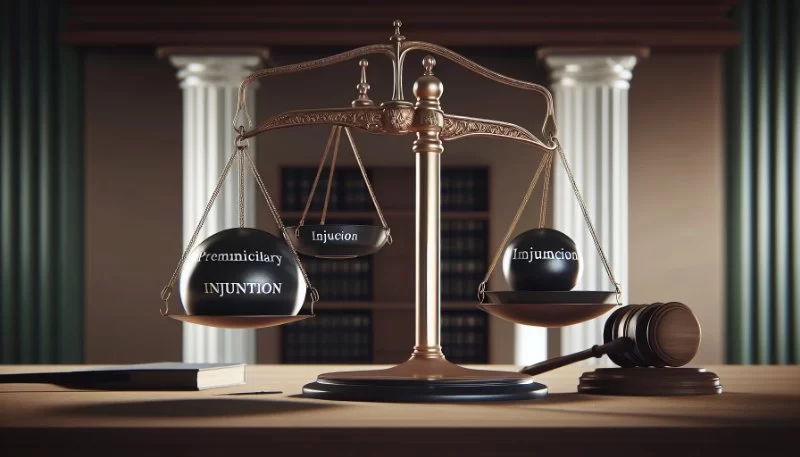
- 1 - What Is an Injunction in Civil Law
- 2 - Types of Injunctions in Civil Cases
- 3 - How Courts Decide to Grant an Injunction
- 4 - Real-World Examples of Injunctions
- 5 - Why Legal Guidance Matters for Injunctions
- 6 - How ESPLawyers Can Support Your Case
1. What Is an Injunction in Civil Law
In civil law, an injunction is a powerful legal order issued by a court requiring a party to either do something or refrain from doing something. Unlike financial compensation, which addresses harm that has already occurred, injunctions are preventative and designed to stop harm before it escalates. This makes them one of the most effective remedies when urgent protection of rights is necessary.
For example, if one party is about to demolish a historically protected building, a court may issue an injunction to prevent the destruction until the matter is resolved.
2. Types of Injunctions in Civil Cases
There are several types of injunctions, each serving a different purpose in civil disputes:
Temporary Injunctions: These are short-term orders granted until a hearing can be held. They are often crucial in urgent matters where immediate action is necessary.
Preliminary Injunctions: Issued before a case is fully resolved, these orders preserve the status quo while the court reviews the evidence in detail.
Permanent Injunctions: Granted after a full trial, these are lasting orders intended to prevent ongoing or future harm once a case has been decided.
Each type carries significant weight, and their issuance depends on the court’s assessment of urgency, fairness, and potential harm.
3. How Courts Decide to Grant an Injunction
Courts do not issue injunctions lightly. Several factors are considered, including the severity of potential harm, whether financial compensation would be adequate, and the balance of fairness between the parties. Judges also look at whether granting an injunction serves the public interest.
For instance, in cases involving environmental damage, courts often prioritize injunctions to prevent irreversible harm, even if the economic costs are high for one party.
4. Real-World Examples of Injunctions
Injunctions have been used in a wide range of civil disputes. For example, tech companies have frequently sought injunctions to stop competitors from using patented technology. In another notable case, a community obtained an injunction to stop industrial dumping that threatened local drinking water supplies.
These examples highlight how injunctions serve as both shields and swords in civil litigation—protecting rights and enforcing compliance with the law.
5. Why Legal Guidance Matters for Injunctions
Because injunctions can significantly alter the rights and responsibilities of individuals or businesses, proper legal representation is essential. A well-prepared case that demonstrates urgency, irreparable harm, and fairness greatly increases the chances of securing or defending against an injunction.
Failing to respond correctly to an injunction can lead to severe legal consequences, including contempt of court or financial penalties.
6. How ESPLawyers Can Support Your Case
If you are facing a situation where an injunction may be necessary, or if you need to defend against one, ESPLawyers can provide the expertise you need. Their team of professionals understands the complexities of civil law and can guide you through the process, from urgent applications to long-term resolutions. With their support, you gain both confidence and clarity in navigating one of the most impactful remedies in the legal system.
Whether you are an individual protecting personal rights or a business safeguarding operations, ESPLawyers ensures you have the best legal strategies at your disposal.








